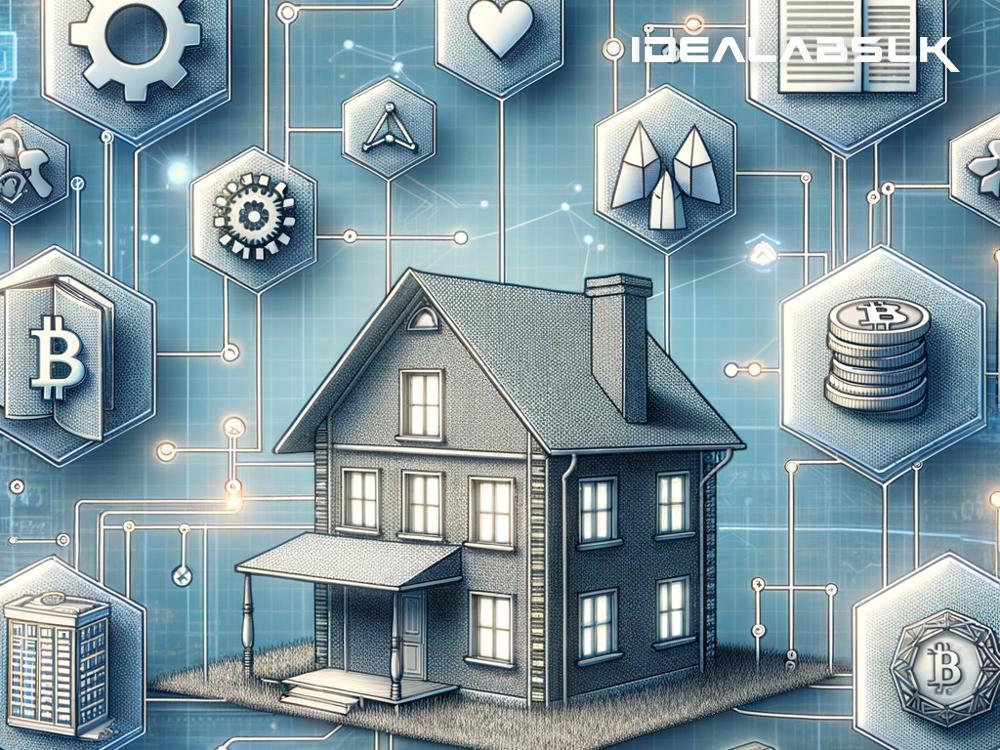Unlocking Efficiency: How Blockchain is Transforming Real Estate Transactions
In the ever-evolving world of real estate, finding methods to streamline transactions and cut costs is always at the forefront of investors, homebuyers, and realtors' minds. Imagine if there was a technology capable of transforming the energy-consuming, paperwork-laden process of buying and selling property into a sleek, faster, and more cost-effective one. Well, it’s not a figment of the imagination anymore – welcome to the world of blockchain technology.
What is Blockchain?
Blockchain might sound like a complex concept, but at its core, it's pretty straightforward. Think of it as a digital ledger that securely records transactions across a network of computers. What makes it special is its ability to ensure the authenticity and safety of a data exchange, making it virtually tamper-proof.
The Traditional Real Estate Maze
Before diving into how blockchain is revolutionizing real estate, let's quickly overview the traditional process. Buying or selling a property involves numerous steps: negotiations, inspections, appraisals, obtaining financing, and the seemingly endless exchange of legal documents. Each step not only adds time but also increases transaction costs significantly.
Moreover, the involvement of several intermediaries, such as lawyers, brokers, and banks, each adds their fees and commissions to the transaction. Additionally, the risk of fraud and errors in the public records further complicates the process, making it more expensive and time-consuming.
Enter Blockchain: A Game Changer for Real Estate
Blockchain technology introduces a level of efficiency and security that could very well be the antidote to the traditional process's inefficiencies. Here's how blockchain can help reduce transaction costs in real estate:
-
Smart Contracts:
- These are self-executing contracts where the terms are directly written into lines of code. They automatically enforce and execute the terms of an agreement when certain conditions are met, eliminating the need for intermediaries. This means lower fees and a much quicker transaction process.
-
Transparency and Security:
- All transactions recorded on a blockchain are transparent and easily verifiable, reducing the need for costly background checks or to verify ownership and the history of a property. The security features of blockchain also significantly reduce the risk of fraud, further cutting down costs associated with insurance and due diligence.
-
Tokenization of Real Estate Assets:
- Blockchain allows for the division of property into tokens that represent ownership or a share of the property. This can dramatically lower the entry barriers to real estate investment, offering the possibility to buy and sell fractions of properties without the hefty transaction costs normally associated with real estate deals.
-
Streamlined Payments:
- The use of cryptocurrencies for transactions can simplify and speed up the payment process, bypassing traditional banking fees and reducing the costs associated with currency exchange in international deals.
Real-World Impacts
The impact of blockchain on real estate isn't just theoretical. Several startups and established companies are already leveraging this technology to offer better solutions. For example, platforms now offer tokenized properties, making real estate investment more accessible. Meanwhile, some governments and municipalities are experimenting with blockchain to manage public property records more efficiently.
Challenges and the Road Ahead
While the benefits of blockchain in real estate are clear, the path to widespread adoption comes with its challenges. Regulatory hurdles, the need for a more profound technological understanding among real estate professionals, and the pace of adoption are significant considerations.
However, as technology advances and more success stories emerge, the real estate industry's evolution toward a more efficient and less costly future seems inevitable. Blockchain stands at the forefront of this change, promising a world where buying your dream home might be as easy and quick as making an online purchase.
Conclusion
As we stand at the cusp of a significant shift in how real estate transactions are conducted, it's clear that blockchain offers a powerful solution to many of the industry's longstanding inefficiencies. By reducing costs, speeding up processes, and opening new opportunities for investment, blockchain isn't just changing the game; it's setting a new standard for the future of real estate. As we move forward, embracing this technology could very well mean the difference between staying ahead of the curve or being left behind in the rapidly evolving landscape of real estate.

